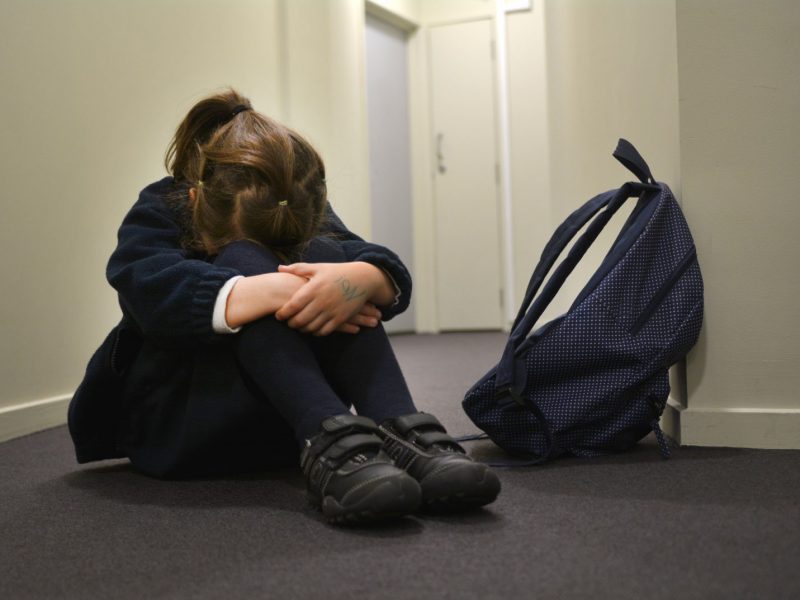Institutional abuse: are schools vicariously liable for “intentional torts” committed by their employees and agents?
If you or someone you know have been a victim of institutional abuse, or any other form of abuse, we are here to help you seek compensation.
We know compensation can’t undo the trauma of child sexual abuse, and other forms of abuse, but it can help you with counselling and loss of income, to assist you to make a new start in life. Holding institutions to account can also ensure they put the right procedures and safeguards in place so that children receive the protection they need going forward. We provide victims with sound legal advice and representation, to help them achieve the best possible outcome.
Regrettably, schools sometimes put students at peril by placing them in the care, and under the supervision, of school employees, staff or responsible third-parties who then commit intentional, wrongful acts against those students (such as, physical and/or sexual assault).
Such intentional, wrongful acts – often criminal acts – may give rise to common law claims by victims against the responsible school, in accordance with the law of vicarious liability for intentional torts.
Following the “relevant approach” adopted by the High Court in the case of Alfred College Incorporated v ADC [2016] HCA37, the courts are to consider:
“…any special role that the employer has assigned to the employee and the position in which the employee is thereby placed vis-à-vis the victim.
In determining whether the apparent performance of such a role may be said to give the ‘occasion’ for the wrongful act, particular features may be taken into account. They include authority, power, trust, control and the ability to achieve intimacy with the victim. The latter feature may be especially important.
Where, in such circumstances, the employee takes advantage of his or her position with respect to the victim, that may suffice to determine that the wrongful act should be regarded as committed in the course or scope of employment and as such render the employer vicariously liable.
To learn more about institutional abuse, please visit our institutional abuse page.
What can students and families affected by institutional abuse do?
Persons affected by institutional abuse at, or in connection with, schooling/education have a number of options for redress:
Victims’ Compensation
Firstly, primary victims of crime can apply for immediate financial support of up to $5,000, as well as 22 hours’ counselling.
National Child Sexual Abuse Redress Scheme
Secondly, primary victims of child sexual abuse can apply for compensation through the National Redress Scheme. Survivors of institutional child sexual abuse can apply for a direct personal response (e.g. a written apology from the responsible institution), and/or claim access to counselling and psychological services including a one-off payment of up to $5,000; and/or a compensation lump sum of up to $150,000 depending on the nature and extent of the violation and harm.
Court Proceedings for Damages
Alternatively, students and their families can make a common law claim in intentional tort for the intentional, wrongful acts perpetrated against them by almost anyone placed in a position of authority, power, trust, control and intimacy, whereby the school may be determined to have caused and/or provided the ‘occasion’ and ‘opportunity’ for the offences/trespasses against student victims (i.e. the intentional, wrongful acts(s) causing harm).
If a person claims damages for personal injuries that they have suffered as a result of intentional tort (wrongful act), they could seek compensation for any losses caused by the injuries, including the loss of income or income earning capacity, the care they require and are provided either commercially or by their loved ones, and for the pain and suffering that they have suffered.
It is also open to the courts to award aggravated and/or exemplary damages to further punish the offending school and/or deter other schools/institutions from the conduct complained of.
What are your steps in making a claim against a school?
Contact Us
We can speak with you either in person, by audio visual means, or by telephone, by way of a free initial consultation – in order to understand the circumstances of your potential claim. We will talk to you about your case and advise initially whether we think the case is worth your while to investigate.
Obtain Your Clinical Notes
If we agree that your case has prospects of succeeding, we will request your relevant clinical records, as well as any relevant police records. Once we have reviewed those records thoroughly, we will advise you whether we think there is merit in pursuing a claim.
Court Proceedings
Once we have the supporting documents and evidence necessary to commence court proceedings, we can do so on your behalf and act for you in those proceedings until the case is resolved.
Are there time limits in making a claim against a school or school authority?
There is no limitation period for victims of child abuse, including sexual abuse.
It is nevertheless important to speak with a solicitor as soon as possible if you think you have a claim against a school on grounds of vicarious liability for intentional tort. It is our experience that relevant documents and witnesses become more difficult to locate as time goes by.
If you or someone you know have been a victim of institutional abuse, or any other form of abuse, we are here to help you seek compensation
It is also very important to act promptly, as there are time limits which apply to actions in both negligence and intentional torts.
Our team of expert personal injury lawyers would be pleased to meet with you to discuss your options. Please call us on (02) 4050 0330 or book online for an obligation-free consultation.





